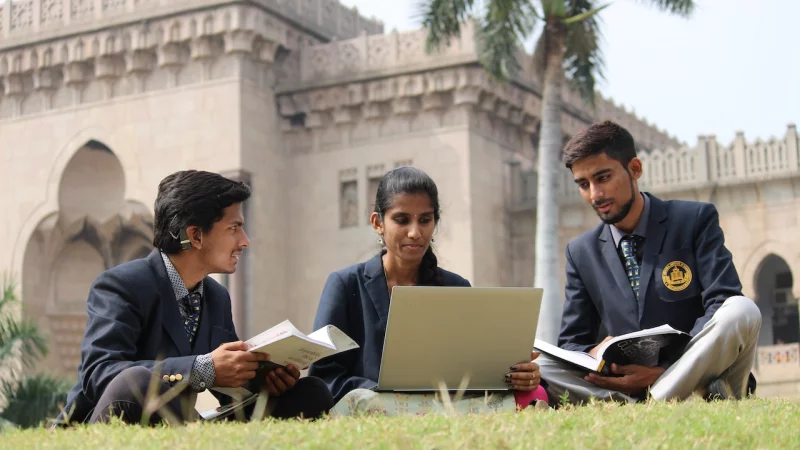
A 2016 application trends survey by the Graduate Management Admission Council (GMAC) showed that India is now the top provider of international candidates for both one-year and two-year MBA programmes. The poll of 216 leading graduate business schools across the world found that India has overtaken China and the US.
According to GMAC’s Profile of GMAT Testing, Indian citizens represent 12% of global GMAT testing and a whopping 91% of testing by Central and South Asian citizens. As a point of reference, Indian citizens sat for 29,042 GMAT exams in testing year 2015 alone, compared with 19,103 for Western Europe and 1,968 for Russia.
The growing stream of Indians pursuing MBA degrees abroad is being fed mainly by the country’s expanding economy and growing demand for skilled managers. In addition, a job applicant with a degree obtained abroad easily stands out from the crowd, which is a welcome benefit considering the intensifying competition on the local job market.
But how does this over-representation put you, the candidate from India, in a difficult position? It does because global diversity is one of the key components considered by MBA admission officers. This means that as more and more Indians apply for MBA programmes, you face increasingly fierce competition within this sub-segment.
1. Differentiate yourself
That is why differentiating yourself to ensure you stand apart from your competitors should be one of the most pressing items on your agenda. According to Abhishek Sahay, MBA Advisor at AdmitHour, you should emphasize achievements and experience that set you apart from your peers. This way you will also avoid being put into a “category” and branded as a typical Indian candidate. If you have had the chance to exhibit your leadership skills and steered a department or even a company through a difficult period, make sure to mention it. If you have acquired skills in management at a large international company, point them out.
The admissions officer will more than likely be reviewing thousands of applications from your region, so highlighting your team leadership skills is certainly a good idea. According to Shawn O'Connor, founder and president of Stratus Prep, you should also emphasize your creative pursuits outside work to increase your chances of being remembered by whoever is reviewing your application.
If you are coming from an over-represented country, like India, one of the great differentiators you may have in your application is your multicultural experience. Even if the position may be slightly less prestigious, taking a role in a foreign country may be the better choice because MBA admissions officers will recognise this.
The need to make your application distinctive becomes even more urgent if you have an engineering background, which is very likely if you are a candidate from India. According to Stacy Blackman Consulting, there are too many Indian applicants with engineering experience, which makes catching the eye of admission directors very difficult for them. This is why candidates from this part of the world receive the most rejection letters.
2. Don’t obsess over the GMAT
It is understandable why MBA aspirants become fixated on the GMAT – it is an exam and applicants are conditioned to think that exams are the main hurdles to be cleared in the race to the final admission. You should be aware, however, that the GMAT is only one of the requirements in the admission process.
GMAT is important, but so are your essays and interviews. According to Riadh Hamida, founder and CEO of Cours Colbert, a great GMAT score without outstanding essays and interviews is worth nothing. Many 800 top scorers are turned down for top MBAs because schools are not only looking for GMAT scores: top MBA schools are interested in profiles, experiences, and in people who can bring value to their programme.
Check out: GMAT Scores in India
This is not to suggest, though, that you should neglect the GMAT. A high score will enhance your application, but you should also know that a combination of a high score and weak essays is unlikely to land you even an invitation for an interview. A great GMAT score gives you an advantage, but admission is still a long way off.
3. Highlight motivation
Listing one’s achievements in the essays is not going to impress admissions officers because that’s not what they are looking for. What they want to know about is the motivation behind your decisions, not just a snapshot of your trophy room. You should elaborate on the incentives that drove you to make the decisions you have made. Why did you accept that job offer? Why did you steer your team in that direction? Why did this particular problem incite you to action? And remember: focus more on the "Why" and less on the "What".
Also, don’t be afraid to lift the curtain on your personality. Admissions committees want to know what kind of individual they are dealing with, whether the candidate thinks like a leader or has the potential to become one. Don’t avoid writing about the personal challenges you have faced, they are certainly unique and will help distinguish your application from that of your peers. In addition, talking about your personal experience will make it easier for you to avoid stock expressions or anecdotes made banal by too frequent use.
4. Do your research on the schools
Knowing the programmes of the schools you want to apply to is important for two reasons. First, you need to be aware of the requirements of each particular school and whether you will be able to meet them. Being well-informed about the school will also give you a clear idea of whether your application will be considered. You also have to know if this is the school that will help you achieve your goals.
Secondly, admissions officers are seeking candidates who know why they are applying to this particular school. The ideal candidate would have researched the school’s programme and decided that it will help him pursue his or her chosen path.
What your career vision is and how an MBA degree from the business school of your choice will be instrumental for your development, are essential aspects of your motivation, which admissions committees will consider, according to Iliana Bobova, Head of Admissions Consulting at Advent Group and a former EMBA admissions officer. She explains that this is often a topic to be discussed in the essays and during the admissions interview.
Check out: Top MBA Admission Essay Requirements
You should do more than just read the brochure. Try to contact current students or recent alumnae to obtain insider information. You may also go to the campus and talk to school representatives. Don’t attach more importance to school rankings than they deserve. Rankings are a helpful tool if used properly, as they contain a lot of valuable information for applicants, but it won’t hurt to treat them with a dose of scepticism. Rankings tend to overshadow more important factors. If you let yourself be seduced by the good standing of a school, you may fail to ensure that it is really suitable for you, fits your career goals and is recognised by your preferred industry.
Check out: Which Business School Rankings to Check Out
5. Look for admission consultants
Securing a place in a top MBA programme is no mean feat. Nearly 8,000 candidates filed applications for Stanford’s 2017 MBA class. Only 407 got admitted.
Some MBA aspirants resort to specialised consulting firms to enhance their applications. The services of such companies don’t come cheap – some students spend up to USD 4,000 per MBA application to a single b-school. Many of those firms are founded by former heads of universities’ admission departments.
You may want to look for a consulting firm if you sense that you won’t be able to go through the complicated admission process by yourself or if the schools of your choice are highly selective. Experienced admissions consultants can quickly identify aspects that can make your profile stand out and suggest an effective personal “branding” strategy, according to Bobova from Advent Group.
The MBA has been one of the most sought-after courses among Indian students in recent years, so you have to make sure you submit a top-notch application. Following these five tips can help you do just that.


Comments